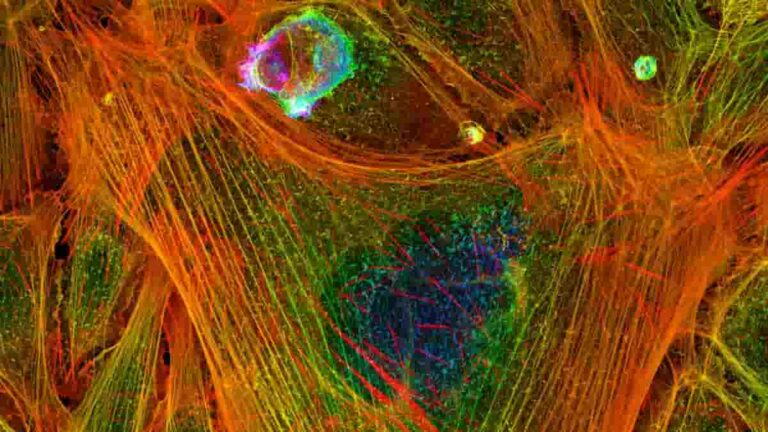Lack of sleep has previously been found to impact the activation of the immune system, inflammation, carbohydrate metabolism and the hormones that regulate appetite. Now University of Helsinki researchers have found that sleep loss also influences cholesterol metabolism. The study examined the impact of cumulative sleep deprivation on cholesterol metabolism in terms of both gene…
Expanding Role For Dopamine In Reward Prediction
As any kindergarten instructor will tell you, reward is one of the most powerful teachers. Some of the earliest and most iconic examples of behavioral psychology concern how animals learn, from experience, which stimuli or actions accompany reward (Thorndike, 1898; Pavlov, 1927). A century later, computational neuroscientists have described neural circuits that underpin such learning.…
Can Testing Mental Maps Find Alzheimer’s Sooner?
Increasing difficulties with building cognitive maps of new surroundings could herald the eventual clinical onset of Alzheimer’s long before a clinical diagnosis is possible. Denise Head, associate professor of psychological and brain sciences at Washington University in St. Louis and senior author of the new study, says: “These findings suggest that navigational tasks designed to…
Genes Linked to Depression, Neuroticism and Wellbeing Found
An international group of more than 190 scientists who analyzed the genomes of 298,420 individuals have found genetic variants that may influence our sense of well-being, depression and neuroticism. The study is one of the largest genomic studies to date on behavioural genetics. “We have known for a long time that these traits have a…
IL-33 Protein Clears Alzheimer’s Disease-like Symptoms
A potential breakthrough in the treatment of Alzheimer’s disease has been made in new research. The study, led by scientists at the University of Glasgow and the Hong Kong University of Science and Technology (HKUST), has discovered that a protein called IL-33 can reverse Alzheimer’s disease-like pathology and cognitive decline in mice. Alzheimer’s disease is…
Shifted Sleep-wake Cycles Affect Women More Than Men
Shifted sleep-wake cycles affect men and women’s brain function differently, a new study from the Surrey Sleep Research Centre at the University of Surrey, has found. Researchers placed 16 male and 18 female participants on 28-hour days in a controlled environment without natural light-dark cycles, at the Surrey Clinical Research Centre. This effectively de-synchronised the…
How Widescreen Is Our Visual Perceptual Experience?
Peek out the window and then close your eyes. What did you see? Maybe you noticed it’s raining and there was a man carrying an umbrella. What color was it? What shape was its handle? Did you catch those details? Probably not. Some neuroscientists would say that, even though you perceived very few specifics from…
Actin Filament Effects Aggregating Protein In Long-term Memory
Thank the little “muscles” in your neurons for allowing you to remember where you live, what your friends and family look like and a lot more. New research at Rice University suggests actin filaments that control the shape of neuron cells may also be the key to the molecular machinery that forms and stores long-term…
What Is Krabbe Disease?
Krabbe disease is a rare, inherited metabolic disorder in which harmful amounts of lipids (fatty materials such as oils and waxes) build up in various cells and tissues in the body and destroys brain cells. Krabbe disease, also known as globoid cell leukodystrophy, is characterized by the presence of globoid cells (cells that have more…

